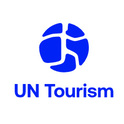UNWTO: Laying out a Sustainable Future for Urban Tourism

Madrid, Spain – Urban tourism and its potential for more sustainable and inclusive cities will be the major focus of the 7th UNWTO Global Summit on Urban Tourism (16-19 September 2018) in Seoul, Republic of Korea. The Summit aims to set out a vision looking to 2030 for this rapidly-growing tourism segment.
The Summit, the first of its kind in North-East Asia, is designed to encourage new strategic approaches to the challenge of a growing tourism sector and its impact on urban destinations, through sharing of innovative ideas and experiences.
Innovative approaches to competitiveness in urban destinations, technology's impact on urban tourism, rejuvenation of cities, and increasing inclusion in city development are among the topics to be featured.
BBC support
UNWTO is proud to announce the support of the BBC to the Summit, with the lead presenter of the Travel Show, Rajan Datar, moderating the "High Level Panel: Urban Tourism in 2030" with ministers and mayors from around the world.
This year's edition will feature B. Joseph Pine II, author of the best-seller 'The Experience Economy', who is known for first using the term to describe the major shift in motivation for people to undertake many economic activities, including travel. Other planned speakers include city mayors and representatives of tourism administrations from destinations such as Amsterdam, Barcelona, Cape Town, Osaka, San Sebastian, Singapore and Seoul, companies such as MasterCard, Google and Amadeus, and the World Bank.
The Summit also embraces the growing segment of youth travel through the UNWTO Global Youth Summit on Urban Tourism side-event (18 September).
Seoul as a backdrop
Seoul is a world-class urban tourism destination, with tourism sites ranging from full heritage sites, including traditional palaces or markets, to state-of-the-art architecture and museums. Recent urban regeneration projects have seen an oil depot turned into a culture park and increased tourism interest to venues used for 2018 events the Pyeongchang Winter Olympics and inter-Korean summit.
Seoul as host destination will feature its fair and inclusive tourism initiative in the conference programme, promoting the importance of building inclusive cities for all.
The Summit is jointly organized by the World Tourism Organization (UNWTO) and the Seoul Metropolitan Government with the support of the Ministry of Culture, Sports and Tourism of the Republic of Korea, the Korean Tourism Organisation and the Seoul Tourism Organization.
About UN Tourism
The World Tourism Organization (UN Tourism) is the United Nations agency responsible for the promotion of responsible, sustainable and universally accessible tourism.
As the leading international organization in the field of tourism, UN Tourism promotes tourism as a driver of economic growth, inclusive development and environmental sustainability and offers leadership and support to the sector in advancing knowledge and tourism policies worldwide.
Our Priorities
Mainstreaming tourism in the global agenda: Advocating the value of tourism as a driver of socio-economic growth and development, its inclusion as a priority in national and international policies and the need to create a level playing field for the sector to develop and prosper.
Promoting sustainable tourism development: Supporting sustainable tourism policies and practices: policies which make optimal use of environmental resources, respect the socio-cultural authenticity of host communities and provide socio-economic benefits for all.
Fostering knowledge, education and capacity building: Supporting countries to assess and address their needs in education and training, as well as providing networks for knowledge creation and exchange.
Improving tourism competitiveness: Improving UN Tourism Members' competitiveness through knowledge creation and exchange, human resources development and the promotion of excellence in areas such as policy planning, statistics and market trends, sustainable tourism development, marketing and promotion, product development and risk and crisis management.
Advancing tourism's contribution to poverty reduction and development: Maximizing the contribution of tourism to poverty reduction and achieving the SDGs by making tourism work as a tool for development and promoting the inclusion of tourism in the development agenda.
Building partnerships: Engaging with the private sector, regional and local tourism organizations, academia and research institutions, civil society and the UN system to build a more sustainable, responsible and competitive tourism sector.
Our Structure
Members: An intergovernmental organization, UN Tourism has 160 Member States, 6 Associate Members, 2 Observers and over 500 Affiliate Members.
Organs: The General Assembly is the supreme organ of the Organization. The Executive Council take all measures, in consultation with the Secretary-General, for the implementation of the decisions and recommendations of the General Assembly and reports to the Assembly.
Secretariat: UN Tourism headquarters are based in Madrid, Spain. The Secretariat is led by the Secretary-General and organized into departments covering issues such as sustainability, education, tourism trends and marketing, sustainable development, statistics and the Tourism Satellite Account (TSA), destination management, ethics and risk and crisis management. The Technical Cooperation and Silk Road Department carries out development projects in over 100 countries worldwide, while the Regional Departments for Africa, the Americas, Asia and the Pacific, Europe and the Middle East serve as the link between UN Tourism and its 160 Member States. The Affiliate Members Department represents UN Tourism's 500 plus Affiliate members.
UNWTO Communications Department
+34 91 567 8100
UN Tourism
